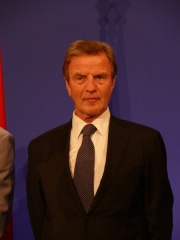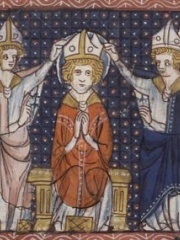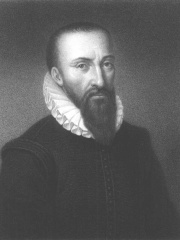
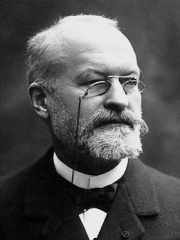
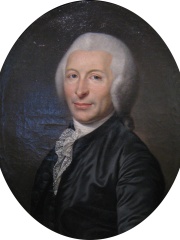
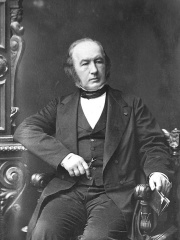
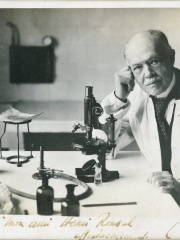
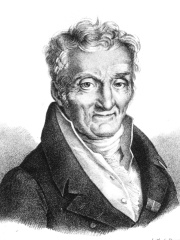
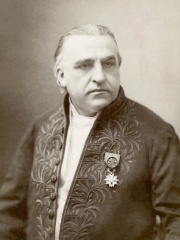

The Most Famous
PHYSICIANS from France
This page contains a list of the greatest French Physicians. The pantheon dataset contains 726 Physicians, 60 of which were born in France. This makes France the birth place of the 4th most number of Physicians behind United States, and United Kingdom.
Top 10
The following people are considered by Pantheon to be the top 10 most legendary French Physicians of all time. This list of famous French Physicians is sorted by HPI (Historical Popularity Index), a metric that aggregates information on a biography's online popularity. Visit the rankings page to view the entire list of French Physicians.

1. Albert Schweitzer (1875 - 1965)
With an HPI of 80.49, Albert Schweitzer is the most famous French Physician. His biography has been translated into 80 different languages on wikipedia.
Ludwig Philipp Albert Schweitzer (German: [ˈalbɛʁt ˈʃvaɪtsɐ] ; 14 January 1875 – 4 September 1965) was a German polymath from Alsace. He was a theologian, organist, musicologist, writer, humanitarian, philosopher, and physician. As a Lutheran minister, Schweitzer challenged both the secular view of the historical Jesus as depicted by the historical-critical method current at this time, as well as the traditional Christian view. His contributions to the interpretation of Pauline Christianity concern the role of Paul's mysticism of "being in Christ" as primary and the doctrine of justification by faith as secondary. He received the 1952 Nobel Peace Prize for his philosophy of "Reverence for Life", becoming the eighth Frenchman to be awarded that prize. His philosophy was expressed in many ways, but most famously in founding and sustaining the Hôpital Albert Schweitzer in Lambaréné, French Equatorial Africa (now Gabon). As a music scholar and organist, he studied the music of German composer Johann Sebastian Bach and influenced the Organ Reform Movement (Orgelbewegung).

2. Charles Louis Alphonse Laveran (1845 - 1922)
With an HPI of 76.47, Charles Louis Alphonse Laveran is the 2nd most famous French Physician. His biography has been translated into 69 different languages.
Charles Louis Alphonse Laveran (18 June 1845 – 18 May 1922) was a French physician who won the Nobel Prize in Physiology or Medicine in 1907 for his discoveries of parasitic protozoans as causative agents of infectious diseases such as malaria and trypanosomiasis. Following his father, Louis Théodore Laveran, he took up military medicine as his profession. He obtained his medical degree from University of Strasbourg in 1867. At the outbreak of the Franco-Prussian War in 1870, he joined the French Army. At the age of 29 he became Chair of Military Diseases and Epidemics at the École de Val-de-Grâce. At the end of his tenure in 1878 he worked in Algeria, where he made his major achievements. He discovered that the protozoan parasite Plasmodium was responsible for malaria, and that Trypanosoma caused trypanosomiasis or African sleeping sickness. In 1894 he returned to France to serve in various military health services. In 1896 he joined Pasteur Institute as Chief of the Honorary Service, from where he received the Nobel Prize. He donated half of his Nobel prize money to establish the Laboratory of Tropical Medicine at the Pasteur Institute. In 1908, he founded the Société de Pathologie Exotique. Laveran was elected to French Academy of Sciences in 1893, and was conferred Commander of the National Order of the Legion of Honour in 1912.

3. Joseph-Ignace Guillotin (1738 - 1814)
With an HPI of 75.14, Joseph-Ignace Guillotin is the 3rd most famous French Physician. His biography has been translated into 42 different languages.
Joseph-Ignace Guillotin (French: [ʒozɛf iɲas ɡijɔtɛ̃]) (28 May 1738 – 26 March 1814) was a French physician, politician, and freemason who proposed on 10 October 1789 the use of a device to carry out executions in France, as a less painful method of execution than existing methods. Although he did not invent the guillotine and opposed the death penalty, his name became an eponym for it. The actual inventor of the prototype was a French physician, Antoine Louis.

4. Claude Bernard (1813 - 1878)
With an HPI of 74.84, Claude Bernard is the 4th most famous French Physician. His biography has been translated into 59 different languages.
Claude Bernard (French: [klod bɛʁnaʁ]; 12 July 1813 – 10 February 1878) was a French physiologist. I. Bernard Cohen of Harvard University called Bernard "one of the greatest of all men of science". He originated the term milieu intérieur and the associated concept of homeostasis (the latter term being coined by Walter Cannon).

5. Alexis Carrel (1873 - 1944)
With an HPI of 74.22, Alexis Carrel is the 5th most famous French Physician. His biography has been translated into 67 different languages.
Alexis Carrel (French: [alɛksi kaʁɛl]; 28 June 1873 – 5 November 1944) was a French surgeon and biologist who spent most of his scientific career in the United States. He was awarded the Nobel Prize in Physiology or Medicine in 1912 for pioneering vascular suturing techniques. He invented the first perfusion pump with Charles Lindbergh opening the way to organ transplantation. Carrel was also a pioneer in tissue culture, transplantology and thoracic surgery. He is known for his leading role in implementing eugenic policies in Vichy France.

6. Charles Nicolle (1866 - 1936)
With an HPI of 73.90, Charles Nicolle is the 6th most famous French Physician. His biography has been translated into 63 different languages.
Charles Jules Henri Nicolle (21 September 1866 – 28 February 1936) was a French bacteriologist who received the Nobel Prize in Medicine for his identification of lice as the transmitter of epidemic typhus.

7. Philippe Pinel (1745 - 1826)
With an HPI of 73.74, Philippe Pinel is the 7th most famous French Physician. His biography has been translated into 36 different languages.
Philippe Pinel (French: [pinɛl]; 20 April 1745 – 25 October 1826) was a French physician, precursor of psychiatry and incidentally a zoologist. He was instrumental in the development of a more humane psychological approach to the custody and care of psychiatric patients, referred to today as moral therapy. He worked for the abolition of the shackling of mental patients by chains and, more generally, for the humanisation of their treatment. He also made notable contributions to the classification of mental disorders and has been described by some as "the father of modern psychiatry". After the French Revolution, Dr. Pinel changed the way we look at the mentally ill (or "aliénés", "alienated" in English) by claiming that they can be understood and cured. An 1809 description of a case that Pinel recorded in the second edition of his textbook on insanity is regarded by some as the earliest evidence for the existence of the form of mental disorder later known as dementia praecox or schizophrenia, although Emil Kraepelin is generally accredited with its first conceptualisation. As the "father of modern psychiatry", he was credited with the first classification of mental illnesses. He had a great influence on psychiatry and the treatment of the alienated in Europe and the United States.

8. Jean-Martin Charcot (1825 - 1893)
With an HPI of 73.69, Jean-Martin Charcot is the 8th most famous French Physician. His biography has been translated into 51 different languages.
Jean-Martin Charcot (French: [ʒɑ̃ maʁtɛ̃ ʃaʁko]; 29 November 1825 – 16 August 1893) was a French neurologist and professor of anatomical pathology. He worked on groundbreaking work about hypnosis and hysteria, in particular with his hysteria patient Louise Augustine Gleizes. Charcot is known as "the founder of modern neurology", and his name has been associated with at least 15 medical eponyms, including various conditions sometimes referred to as Charcot diseases. Charcot has been referred to as "the father of French neurology and one of the world's pioneers of neurology". His work greatly influenced the developing fields of neurology and psychology; modern psychiatry owes much to the work of Charcot and his direct followers. He was the "foremost neurologist of late nineteenth-century France" and has been called "the Napoleon of the neuroses".

9. René Laennec (1781 - 1826)
With an HPI of 73.53, René Laennec is the 9th most famous French Physician. His biography has been translated into 52 different languages.
René-Théophile-Hyacinthe Laennec (French: [laɛnɛk]; 17 February 1781 – 13 August 1826) was a French physician and musician. His skill at carving his own wooden flutes led him to invent the stethoscope in 1816, while working at the Hôpital Necker. He pioneered its use in diagnosing various chest conditions. He became a lecturer at the Collège de France in 1822 and professor of medicine in 1823. His final appointments were that of head of the medical clinic at the Hôpital de la Charité and professor at the Collège de France. He went into a coma and subsequently died of tuberculosis on 13 August 1826, at age 45.
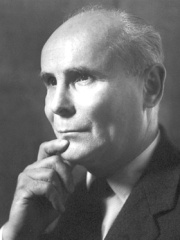
10. André Frédéric Cournand (1895 - 1988)
With an HPI of 73.27, André Frédéric Cournand is the 10th most famous French Physician. His biography has been translated into 51 different languages.
André Frédéric Cournand (September 24, 1895 – February 19, 1988) was a French-American physician and physiologist.
People
Pantheon has 60 people classified as French physicians born between 300 and 1939. Of these 60, 1 (1.67%) of them are still alive today. The most famous living French physicians include Bernard Kouchner. The most famous deceased French physicians include Albert Schweitzer, Charles Louis Alphonse Laveran, and Joseph-Ignace Guillotin.
Living French Physicians
Go to all RankingsDeceased French Physicians
Go to all RankingsAlbert Schweitzer
1875 - 1965
HPI: 80.49
Charles Louis Alphonse Laveran
1845 - 1922
HPI: 76.47
Joseph-Ignace Guillotin
1738 - 1814
HPI: 75.14
Claude Bernard
1813 - 1878
HPI: 74.84
Alexis Carrel
1873 - 1944
HPI: 74.22
Charles Nicolle
1866 - 1936
HPI: 73.90
Philippe Pinel
1745 - 1826
HPI: 73.74
Jean-Martin Charcot
1825 - 1893
HPI: 73.69
René Laennec
1781 - 1826
HPI: 73.53
André Frédéric Cournand
1895 - 1988
HPI: 73.27
Hilary of Poitiers
315 - 367
HPI: 73.09
Ambroise Paré
1510 - 1590
HPI: 72.98
Overlapping Lives
Which Physicians were alive at the same time? This visualization shows the lifespans of the 25 most globally memorable Physicians since 1700.

